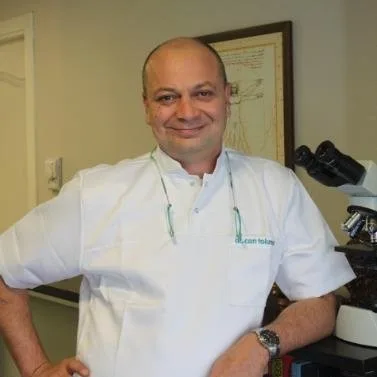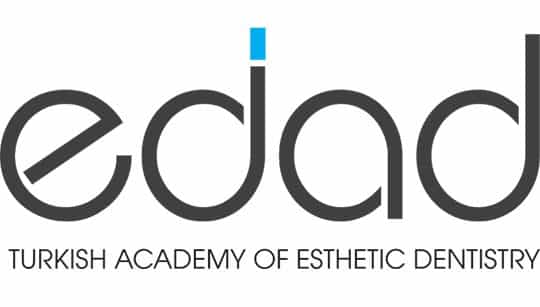Any surgical treatment done on your teeth, gums, jaws, or other oral tissues is referred to as oral surgery. This covers jaw procedures, implants, gum grafts, and extractions. A periodontist or an oral and maxillofacial surgeon typically performs oral surgery. These are dental experts who have received specialized training in performing oral surgeries.
What is oral surgery?
Oral surgery refers to any surgical procedure performed in or around your mouth and jaw, usually by a dental specialist who’s trained to perform certain kinds of oral surgeries. Oral surgeries are usually performed to treat more serious cases of periodontal disease. Certain dental surgeries can also be done to replace or fix missing or broken teeth caused by an accident.
Why is oral surgery performed?
You could require oral surgery for tooth and jaw procedures that are outside the scope of a conventional dentist. For instance, having your wisdom teeth out may need seeing an oral surgeon if they are impacted. A periodontist, who performs these kinds of oral procedures, might be recommended to you if you have gum disease and require a gum transplant.
What are the different types of oral surgery?
There are many types of oral surgery, including surgical procedures such as a tooth removal or a root canal. Some oral surgeries involve the repositioning of the jaw. In other instances, oral surgery may involve the removal of a tumor. Oral surgeries might be performed by any one of a number of different kinds of dental specialists, including endodontists, periodontists, and prosthodontists. We may list the types of oral surgeries as follows:
1 Tooth extraction
Your dentist may choose to extract your tooth as a last resort if it is broken or rotten and cannot be fixed with a filling or crown first. When a tooth cannot be saved, extraction may be your best option. Nevertheless, at your consultation, your dentist will go over your options with you.
Why are teeth pulled out?
There are many circumstances in which having a tooth extracted may be necessary. For instance, if you possess
- serious tooth decay
- gum disease (periodontal disease)
- an irreparably damaged tooth
- abscess on your gums or around your teeth
- crowded teeth
- affected wisdom teeth
2 Dental bone graft
In order to repair bones that have been broken by trauma or have problematic joints, bone grafting, or the transplantation of bone tissue, is used. In the mouth, the jawbone holds natural teeth in alignment. The area of the jawbone that carries the root is weakened whenever a tooth is lost for whatever cause. This deterioration is comparable to the gradual atrophy and weakening of an inactive muscle. The majority of the time, bone grafting is done to stop this bone weakening impact, which is identified during the implant application’s decision step.
When is Bone Grafting Necessary?
Bone grafting is a technique that is required when a patient does not have a sufficient amount of healthy natural bones in his or her mouth that are capable of supporting the dental implants. This deficiency of natural bones can be caused by:
- Development Defects
- Gum Disease
- Face Injury or Trauma
- Empty Space After Teeth Were Removed
3 Dental implants
A dental implant is a screw-shaped chunk of titanium or another substance. It is inserted into the jaw where the roots of the missing tooth were. The implant is held in place by the bone that develops around it over time.
The gap left by the missing tooth is then filled in by attaching a crown, an artificial tooth, on the metal. The crown is specifically created to have the same size, shape, and color as the other teeth.
Dentures or a dental bridge can be fixed in place with the help of dental implants.
4 Periodontal surgery
It’s a surgery for restoring the appearance and functionality of a gum disease-damaged mouth. Surgery for periodontal disease to treat the gums, teeth, or bone may fall under this category.
Get your teeth and gums evaluated by a dentist if you have gum disease symptoms or haven’t practiced good oral hygiene (this includes skipping dental checkups). A gum infection is a chronic condition that needs to be treated.
Options for periodontal surgery include:
- Increasing the length of a dental crown to remove extra gum or bone tissue from a tooth
- Soft tissue grafting to prevent tooth root injury and gum recession
- To prepare for a dental implant or stabilize a natural tooth, a patient may need a bone graft and tissue graft.
- Gum grafting is used to replace severely receding gum tissue around a tooth with healthy tissue.
- Using bone morphogenic protein (BMP) can encourage the body to produce new bone.
- Gum flap surgery or pocket reduction surgery can temporarily detach teeth from gums so that the affected root can be cleaned.
5 (Orthognathic) Corrective jaw surgery
Even with the most advanced non-surgical methods, skeletal and dental abnormalities can occasionally be difficult to correct. Corrective jaw surgery, commonly known as orthognathic surgery, may then be advised.
Jaw surgery can be used to treat serious orthodontic issues involving the interaction between the teeth and jaws, including the treatment of congenital abnormalities (birth defects) related to jaw development and underbites (the surgical repair that occurs most frequently). It can even aid in the treatment of the potentially fatal disorder sleep apnea.
6 Sleep apnea surgery
There are many surgeries given to people with obstructive sleep apnea (OSA) and one for people with central sleep apnea (CSA).
A person with OSA experiences partial or complete airway obstruction while they are sleeping, which causes them to cease breathing. Surgery for OSA typically entails eliminating physical obstructions, such as tissue or by repositioning the jaw or tongue. The best procedure for a specific OSA patient depends on their anatomy and the nature of the airway obstruction. Given the connection between OSA and obesity, weight loss operations are occasionally advised as well.
7 Cleft lip and palate repair
Palate repair surgery is usually done when your baby is 6 to 12 months old. The gap in the roof of the mouth is closed and the muscles and the lining of the palate are rearranged. The wound is closed with dissolvable stitches. The operation usually takes about 2 hours and is done using a general anaesthetic. (From NHS)
How long does oral surgery take?
There isn’t really a straightforward response to this question. First of all, it really varies depending on the specific operation you are having done. The extent of the surgery and the occurrence of complications are two additional considerations. The entire process of pulling a tooth (from administering the anesthetic to applying stitches if needed) typically takes approximately 30 minutes, while more detailed procedure – such as corrective jaw surgery- takes more than 2 hours, up to 3 in general.
How Long Is Recovery From Oral Surgery
Today, oral surgeries often take just one day and a few hours to complete. Patients are quickly back on their feet and fully recovered after being discharged with a comprehensive list of post-operative instructions.
For the outcomes you and your dentists have discussed, your oral surgery recovery is crucial. After surgery, avoid smoking and drinking alcohol because they can hinder your recovery. Use an ice pack to minimize swelling if you’re experiencing any pain. To get rid of any bacteria, rinse your mouth with salt water every few hours rather than brushing your teeth.
Don’t be too hard on yourself. Recovery might take anything from 48 hours to a month, depending on the kind of oral surgery you have. As instructed, make sure to follow up with your dentist.
What are the advantages of oral surgery?
A wide range of illnesses and problems can be addressed, treated, and relieved by oral surgery. The following are some noteworthy benefits of receiving care through oral surgery.
Repairing facial trauma entails resolving minor to complicated skin tears, realigning facial and jaw fractures, reattaching severed nerves, and treating various wounds. Treatment of the oral tissues, jaw, cheek and nasal bones, eye sockets, and forehead are frequently involved in this.
Reconstructive and cosmetic improvements can be made to the jaw, the face bones, and the soft tissues that have become damaged as a result of trauma or the excision of cysts or tumors. The maxillofacial region’s form and function are restored by these operations.
Managing facial, dental, or oral pain may involve identifying and managing conditions that cause facial discomfort, such as TMJ problems. Treatment with oral surgery is frequently advised when non-surgical options have not been effective in relieving discomfort or when there is joint injury.
In order to enhance chewing, speaking, and breathing, Correcting Jaw Injuries or Misalignment focuses on addressing small to substantial skeletal and dental jaw irregularities. These operations reconstruct the upper and lower jaws to fit ideal dental and maxillofacial equilibrium, frequently working with an orthodontist. Oral surgery can help treat inherited facial and cranial deformities including cleft lip and cleft palate.
Istanbul Dental Clinics Statement
For patients in need of oral surgery of any kind , it is often wise to discuss the benefits and drawbacks of the surgery and recovery period with a dentist. Because the oral health is very specific to the patient, consulting a dentist is the best way. By taking into account the location of issue and the patient’s individual preferences, the dentist and patient can decide together on the right material to use.
At Istanbul Dental, with our qualified team we are ready to answer your additional questions, so do not hesitate to get in touch with us . Also, get a quote to start planning your dental treatment as whole process including your VIP transfer! While gathering information and inspecting the options about the dental services, we recommend you to visit our smile gallery and see our previous patients’ sincere smiles.













